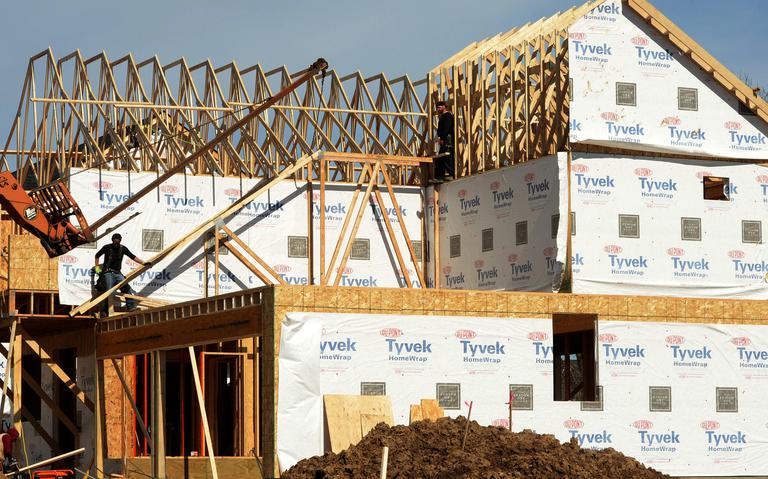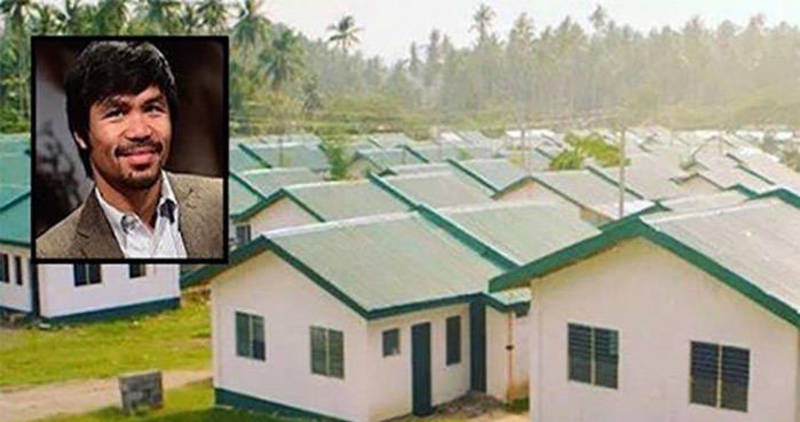ST. PAUL — Todd Polifka wonders if he is in the lost year of the housing industry.
“This is one of the worst possible times for us,” said Polifka, as he surveyed a house he is building in Inver Grove Heights, Minn.
Home builders say the impact of the coronavirus will delay construction by four months — which could wipe their peak building months right off of the calendar.
Builders like Polifka can’t sell as many homes without open houses due to social distancing. They can’t easily get the supplies, from lumber to doorknobs to kitchen sinks.
The slowdown is toughest on the one type of housing many say is needed the most. “For affordable housing, it will be even more acute,” said David Siegel, director of Housing First Minnesota, an advocacy group. “Regrettably, it will.”
Tom Wiener, owner of three home-related businesses, is trying to be optimistic.
Wiener said he wouldn’t call 2020 a lost year — yet. That’s only because it won’t be as bad as the Great Recession of 2008 to 2009.
“That was Mount Everest,” he said. “This is Pike’s Peak.”
Affordable housing suffers
In February, the state was facing a housing shortage. Builders, emerging from a long winter, were ready to charge into a busy season.
“We were having our best spring in a decade,” said Siegel.
Then the virus hit and put Minnesota in stay-at-home mode, with nonessential businesses shutting their doors.
While construction of single-family homes in Minnesota rose 20 percent for the 12 months before March, affordable housing was clobbered, according to Housing First.
Permits for multi-family units — mostly more affordable rentals — suffered a one-month crash of 33 percent in March.
It was enough to deflate the total housing permits by 24 percent in 12 months, said Housing First, dragging the industry into a slump.
Boxed in
In this climate, building a house is a bit of an act of faith.
Polifka, owner of Custom One Homes, took a gamble when he started his house in Inver Grove Heights.
He doesn’t have a buyer for it. But he is betting that he can sell it.
It certainly looked promising when he inspected it — a handsome four-bedroom in the upscale Amberwood development.
But he could see where the coronavirus had boxed him in.
In the front yard sat a small pile of lumber — one of the supplies that is becoming scarce. Builders need thousands of pieces to assemble a house, but everything from doorknobs to shingles to water pipes are not arriving on time.
“Right now, I can’t even get cabinets,” Polifka said.
Staggering shifts for work crews
Polifka looked at his workers, framing the roof trusses. There were only two. Where were the others?
They were told not to come. To maintain social distancing, Polifka staggers the shifts of work crews. Instead of carpenters, plumbers and electricians blitzing a house, he parcels them out, one crew at a time.
He looked at the lot itself, a standard size for suburbs, about 70 feet wide. He paid $212,000.
Polifka bought it before the coronavirus struck, but said land prices will continue to cripple construction — particularly affordable housing.
“How do you put a $350,000 house on that lot?” he said. “Look around. There are no $60,000 lots here.”
After he builds it, the coronavirus will sabotage him again.
That’s because anyone buying a home wants to walk through it first. But thanks to the virus, open houses have been virtually banned, and the biggest sales event of the year — the Parade of Homes — was suspended.
Polifka hopes to sell the house with virtual tours and with limited by-appointment-only tours.
Lasting impact
The impact of the virus, he said, will last long after the pandemic has passed.
That’s because the pipeline is slow — it can take as long as 18 months to build a new house and sell it.
A slowdown in building this year means a slowdown in sales next year. “If you think this is the lost year, next year’s going to be worse,” said Polifka.
The slowdown is similar across the state.
“It could be a lost year, at least for some of us,” said Howie Zetah, president of the Builders Association of Minnesota.
He said that as the stock market sinks and unemployment soars, even customers who can afford new homes get jumpy.
“I had two homes, all ready to start, and they decided to wait,” said Zetah, owner of Zetah Construction in Bemidji.
He predicted a drop of 15 percent to 25 percent in 2020.
A rebound, but when?
Wiener, owner of Cardinal Homebuilders, Cardinal Realty and Cardinal Remodeling, said his new homes are now going to be delayed by up to five months.
Wiener is cutting back from the 20 homes he was planning on this year to 15. His real estate business is down by the same amount, about 25 percent. Remodeling, though, is steady, he said.
He predicted that the industry would rebound, if interest rates stay low. But he wouldn’t guess when.
Housing First’s Siegel also sees the possibility of a bounce-back — under the right conditions.
He wants cities to ease zoning restrictions to allow more affordable construction.
“Let’s relax some of these city ordinances, the 90-foot lots and three-car garages,” he said. “Let builders build what buyers want.”
When will that happen? In time to save 2020?
“My gut tells me we are going to come out of this relatively soon and be pretty healthy,” he said. “But I have been wrong before.”
Source: grandforksherald







